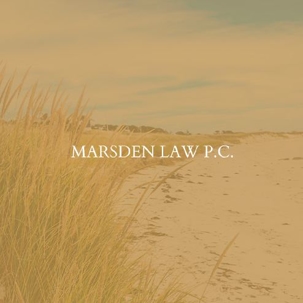Losing a loved one is one of the most difficult parts of life. The days and weeks that follow the death of a loved one can be challenging – especially for family members who need to arrange their loved one’s assets and estate planning. To help you during this challenging time, our team at Marsden Law P.C. has put together a guide to help you navigate the process of obtaining access to your loved assets.
You don’t need to go through this process alone. Contact our Metro West Boston estate planning attorneys today at (508) 568-6469 to schedule a consultation!
Accessing Assets After a Loved One’s Death
If you are in charge of handling the affairs of your loved ones after their death, there are a few things you should know before getting started. Every person’s situation may be slightly different, but below we have put together steps to access your loved one’s assets and transfer them after they have passed.
Obtain Legal Documents
The first thing you should do is obtain legal documents, such as their bank and other financial accounts, filing a claim on life insurance, along with other personal affairs. It is important that you obtain several copies of their death certificate, which you can get from the funeral home or medical examiner.
Determine the Need for Probate
You should also review their will and other estate planning documents to determine how you should handle their assets. If your loved one left a will, it should specify who should be in charge of the probate process, along with instructions on how to transfer property. However, before the will becomes effective, it must be “admitted” by the probate court in the county where the person resided.
If there is a trust, the probate process can be skipped entirely.
Secure Assets
Next, you will need to secure basic assets and personal property by ensuring that the home(s) and car(s) are locked. You should go through their assets to determine which ones should be accounted for and which ones can possibly be sold in an estate sale (if you desire to do so down the road). If you in fact have to go through probate, the probate court will supervise the inventory and valuation of the assets, along with the payment of debts and the distribution of remaining assets to heirs.
Pay Bills & Close Accounts
You might need to set up a bank account in the estate’s name to handle any financial dealing throughout these final stages. Be sure to have an accurate inventory of all assets, accounts, along with any other property.
Distribute Assets
Once you’re at this stage and all the debts and any taxes the estate owes have been settled, you’ll finally be able to make sure all remaining assets go to the appropriate beneficiaries as dictated by the will or trust.
What If My Loved One Died Without an Estate Plan?
When someone passes away without an estate plan, then the court considers it intestate. Intestate is when the court will decide how your loved one’s assets should be distributed. When someone dies without a will, their assets will be frozen until the court system analyzes the deceased person’s estate. The court determines whether a person’s assets will be given to their spouse, children, parents, or siblings.
The time after losing a loved one is never easy – especially when needing to navigate estate planning laws. If you need help understanding what steps to take next, contact our Metro West Boston estate planning attorneys. Our team is familiar with the legal issues clients face when a loved one suddenly dies in a devastating accident or passes away due to an unexpected health event. That is why our law firm focuses its efforts on providing attentive and compassionate legal counsel to clients throughout Metro West Boston.
Contact Marsden Law P.C. today at (508) 568-6469 to schedule a consultation!
